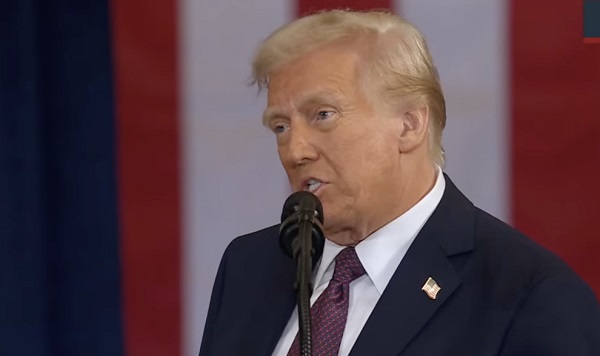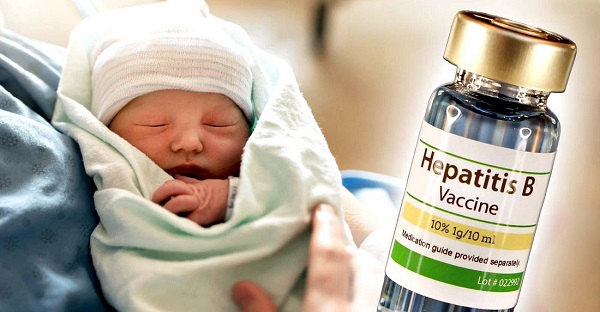Business
Trump gains ground in war against DEI

From The Center Square
By Casey Harper
A major shift is underway in the way large companies talk about and fund Diversity, Equity and Inclusion programs.
President Donald Trump began the transition when he signed an executive order last month eliminating DEI policies and staff at the federal government and extending the anti-DEI policy to federal contractors.
Private companies, some of which had already begun the transition before Trump took office, remarkably began backing off their DEI policies, even if only symbolically with little internal change.
Costco resisted, pushing back on the Trump administration, but other major brands like Amazon Wal-Mart, Target, and Meta announced a pullback from DEI. Media reports indicated DEI discussions on earnings calls has plummeted.
Others, such as Wisconsin-based financial services company Fiserv, have not yet made a change, at least not publicly.
A murky legal future awaits companies willing to take the risk to stick with DEI policies, particularly in hiring.
Fiserv receives hundreds of millions of dollars in government contracts.
According to Fiserv’s website’s Diversity & Inclusion page, the company is “committed to promoting diversity and inclusion (D&I) across all levels of the organization, in our communities and throughout our industry.”
Fiserv says that it “partner[s] with people and organizations around the world to advance our D&I efforts and create opportunities for our employees, entrepreneurs around the world and the next generation of innovators.”
The company’s diversity and inclusion page includes a careers section that discusses “engaging diverse talent” and events to connect with “diverse candidates.”
Critics of DEI initiatives and policies say they discriminate against white men and Asians and lead to hiring and promotion decisions based on factors such as race and sexual orientation rather than merit.
In its 2023 Corporate Social Responsibility Report, the company boasted that “60% of director nominees for the 2024 annual meeting reflect gender or racial/ethnic diversity.”
According to an April 2024 report from Payments Dive, Fiserv was “buoyed by sales to government entities” in Q1 of 2024 and reported $500 million in revenue from those contracts. The U.S. Coast Guard contracted with Fiserv in 2024 to help with payroll, according to HigherGov, among other government contracts.
Fiserv did not respond to multiple requests for comment.
A watershed moment against DEI came when during the Biden administration, the U.S. Supreme Court ruled against longstanding affirmative action policies at American universities, one key example of white and Asian Americans being discriminated against.
Trump’s election has only solidified the new legal framework for what is permissible when considering race and gender in hiring, promotion, and workplace etiquette.
From Trump’s order:
In the private sector, many corporations and universities use DEI as an excuse for biased and unlawful employment practices and illegal admissions preferences, ignoring the fact that DEI’s foundational rhetoric and ideas foster intergroup hostility and authoritarianism.
Billions of dollars are spent annually on DEI, but rather than reducing bias and promoting inclusion, DEI creates and then amplifies prejudicial hostility and exacerbates interpersonal conflict.
DEI has become increasingly controversial as activists use the moniker to advance every liberal policy on race and gender, often at taxpayer expense. In the federal government, DEI had become widespread and infiltrated into every part of governance, from racial quotas for promotions at the Pentagon to driving healthcare research at the National Institutes of Health.
At private companies, DEI policies guided investment decisions via ESG (Environmental, Social Governance) as well as personnel decisions with racial quotas for company board rooms. Those ideas are out of favor with the Trump administration.
Some of the companies resisting the shift from DEI could face legal action.
A coalition of state attorneys general sent a letter to Costco alleging it is violating the law, as The Center Square previously reported.
“Although Costco’s motto is ‘do the right thing,’ it appears that the company is doing the wrong thing – clinging to DEI policies that courts and businesses have rejected as illegal,” the letter said.
This week, Missouri Attorney General Andrew Bailey filed a lawsuit against Starbucks for similar policies.
“By making employment decisions based on characteristics that have nothing to do with one’s ability to work well, Starbucks, for example, hires people by thumbing the scale based on at least one of Starbucks’ preferred immutable characteristics rather than an evaluation of an applicant’s merit and qualifications,” the lawsuit said. “Making hiring decision on non-merit considerations will skew the hiring pool towards people who are less qualified to perform their work, increasing costs for Missouri’s consumers.”
A 2022 Starbucks document touts a DEI goal: “By 2025, our goal is to achieve BIPOC representation of at least 30% at all corporate levels and at least 40% at all retail and manufacturing roles.”
Bailey called the Starbucks policies discriminatory and illegal.
“With Starbucks’ discriminatory patterns, practices, and policies, Missouri’s consumers are required to pay higher prices and wait longer for goods and services that could be provided for less had Starbucks employed the most qualified workers, regardless of their race, color, sex, or national origin,” Bailey said. “As Attorney General, I have a moral and legal obligation to protect Missourians from a company that actively engages in systemic race and sex discrimination. Racism has no place in Missouri. We’re filing suit to halt this blatant violation of the Missouri Human Rights Act in its tracks.”
![]()
Casey Harper
D.C. Bureau Reporter
Business
Storm clouds of uncertainty as BC courts deal another blow to industry and investment

From the Fraser Institute
By Tegan Hill and Jason Clemens
Recent court decision adds to growing uncertainty in B.C.
A recent decision by the B.C. Court of Appeal further clouds private property rights and undermines investment in the province. Specifically, the court determined British Columbia’s mineral claims system did not follow the province’s Declaration on the Rights of Indigenous Peoples Act (DRIPA), which incorporated the United Nations Declaration on the Rights of Indigenous Peoples (UNDRIP) into law.
DRIPA (2019) requires the B.C. provincial government to “take all measures necessary to ensure the laws of British Columbia are consistent with the Declaration,” meaning that all legislation in B.C. must conform to the principles outlined in the UNDRIP, which states that “Indigenous peoples have the right to the lands, territories and resources which they have traditionally owned, occupied or otherwise used or acquired.” The court’s ruling that the provincial government is not abiding by its own legislation (DRIPA) is the latest hit for the province in terms of ongoing uncertainty regarding property rights across the province, which will impose massive economic costs on all British Columbians until it’s resolved.
Consider the Cowichan First Nations legal case. The B.C. Supreme Court recently granted Aboriginal title to over 800 acres of land in Richmond valued at $2.5 billion, and where such aboriginal title is determined to exist, the court ruled that it is “prior and senior right” to other property interests. Put simply, the case puts private property at risk in BC.
The Eby government is appealing the case, yet it’s simultaneously negotiating bilateral agreements that similarly give First Nations priority rights over land swaths in B.C.
Consider Haida Gwaii, an archipelago on Canada’s west coast where around 5,000 people live—half of which are non-Haida. In April 2024, the Eby government granted Haida Aboriginal title over the land as part of a bilateral agreement. And while the agreement says private property must be honoured, private property rights are incompatible with communal Aboriginal title and it’s unclear how this conflict will be resolved.
Moreover, the Eby government attempted to pass legislation that effectively gives First Nations veto power over public land use in B.C. in 2024. While the legislation was rescinded after significant public backlash, the Eby’s government’s continued bilateral negotiations and proposed changes to other laws indicate it’s supportive of the general move towards Aboriginal title over significant parts of the province.
UNDRIP was adopted by the United Nations in 2007 and the B.C. Legislature adopted DRIPA in 2019. DRIPA requires that the government must secure “free, prior and informed consent” before approving projects on claimed land. Premier Eby is directly tied to DRIPA since he was the attorney general and actually drafted the interpretation memo.
The recent case centres around mineral exploration. Two First Nations groups—the Gitxaala Nation and the Ehattesaht First Nation—claimed the duty to consult was not adequately met and that granting mineral claims in their land “harms their cultural, spiritual, economic, and governance rights over their traditional territories,” which is inconsistent with DRIPA.
According to a 2024 survey of mining executives, more uncertainty is the last thing B.C. needs. Indeed, 76 per cent of respondents for B.C. said uncertainty around protected land and disputed land claims deters investment compared to only 29 per cent and 44 per cent (respectively) for Saskatchewan.
This series of developments have and will continue to fuel uncertainty in B.C. Who would move to or invest in B.C. when their private property, business, and investment is potentially at risk?
It’s no wonder British Columbians are leaving the province in droves. According to the B.C. Business Council, nearly 70,000 residents left B.C. for other parts of Canada last year. Similarly, business investment (inflation-adjusted) fell by nearly 5 per cent last year, exports and housing starts were down, and living standards in the province (as measured by per-person GDP) contracted in both 2023 and 2024.
B.C.’s recent developments will only worsen uncertainty in the province, deterring investment and leading to stagnant or even declining living standards for British Columbians. The Eby government should do its part to reaffirm private property rights, rather than continue fuelling uncertainty.
Business
Conservative MP warns Liberals’ national AI plan could increase gov’t surveillance

From LifeSiteNews
Conservative MP Leslyn Lewis raised concerns about the Liberals’ major investment in AI, which could lead to digital ids and loss of freedoms.
Conservative MP Leslyn Lewis is sounding the alarm over the Liberals’ nearly billion-dollar AI infrastructure investment, which could lead to digital IDs
In a December 2 post on X, Lewis raised concerns over the Liberals’ 2025 budget, which funds a $925.6 million “Sovereign Canadian Cloud” and national AI compute infrastructure at the same time as the Liberals are pushing digital identification on Canadians.
“Who audits the algorithms behind government’s new digital systems?” Lewis challenged. “What protections exist for Canadians in this new infrastructure? Who builds it? Who controls it? Who owns the data?”
“Good technology isn’t the issue, our freedoms, surveillance and good accountable governance in a digital era are the real issues,” she warned.
“Digital infrastructure is power, and it must never be implemented in secrecy or without parliamentary scrutiny,” Lewis declared.
Despite spending nearly one billion taxpayer dollars on the project, Prime Minister Mark Carney provides surprisingly few details on how the infrastructure will work and what its purpose will be.
“Budget 2025 proposes to provide $925.6 million over five years, starting in 2025-26, to support a large-scale sovereign public AI infrastructure that will boost AI compute availability and support access to sovereign AI compute capacity for public and private research,” the budget read.
“The investment will ensure Canada has the capacity needed to be globally competitive in a secure and sovereign environment,” it continued.
Alarmingly, the funding comes at the same time as Liberals are moving forward with digital identification systems, despite warnings that they will infringe on Canadians freedoms.
In November, as reported by LifeSiteNews, Liberals moved ahead with digital identification for anyone seeking federal benefits, including seniors on Old Age Security.
Additionally, the Canadian government hired outside consultants tasked with looking into whether or not officials should proceed with creating a digital ID system for all citizens and residents.
Per a May 20 Digital Credentials Issue memo, and as noted by Blacklock’s Reporter, the “adoption” of such a digital ID system may be difficult.
Canada’s Privy Council research from 2023 noted that there is strong public resistance to the use of digital IDs to access government services.
Nonetheless, Conservative leader Pierre Poilievre sounded the alarm by promising to introduce a bill that would “expressly prohibit” digital IDs in Canada.
Critics have warned that the purpose of such IDs is actually to centralize control over citizens. This opinion seems to be mirrored by the general public, with a Bank of Canada survey finding that Canadians are wary of a government-backed digital currency, concluding that a “significant number” of citizens would resist the implementation of such a system.
Digital IDs and similar systems have long been pushed by globalist groups like the World Economic Forum, an organization with which Carney has extensive ties, under the guise of ease of access and security.
-

 COVID-192 days ago
COVID-192 days agoUniversity of Colorado will pay $10 million to staff, students for trying to force them to take COVID shots
-

 Bruce Dowbiggin2 days ago
Bruce Dowbiggin2 days agoIntegration Or Indignation: Whose Strategy Worked Best Against Trump?
-

 espionage2 days ago
espionage2 days agoWestern Campuses Help Build China’s Digital Dragnet With U.S. Tax Funds, Study Warns
-

 Bruce Dowbiggin2 days ago
Bruce Dowbiggin2 days agoWayne Gretzky’s Terrible, Awful Week.. And Soccer/ Football.
-

 Agriculture2 days ago
Agriculture2 days agoCanada’s air quality among the best in the world
-

 Business1 day ago
Business1 day agoCanada invests $34 million in Chinese drones now considered to be ‘high security risks’
-

 Health2 days ago
Health2 days agoCDC Vaccine Panel Votes to End Universal Hep B Vaccine for Newborns
-

 Business2 days ago
Business2 days agoThe EU Insists Its X Fine Isn’t About Censorship. Here’s Why It Is.








